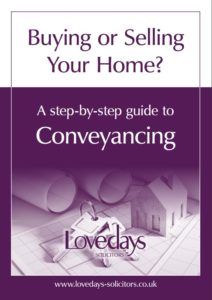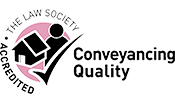- You & Your Family
- Your Job
- Family Law
- Divorce and Separation
- Finances on Divorce
- Dissolution of Civil Partnership
- Separation
- Cohabitation Agreements
- Finances on Breakdown of Cohabitation Relationship
- Prenuptial Agreements
- Grandparents' Rights
- Step-Parents' Rights
- Child Maintenance
- Parental Responsibility
- Paternity Disputes
- Buying Property Jointly
- Probate
- Wills
- Your Property
- Conveyancing
- Partnerships
- Disputes
- Boundary Disputes
- Dealing with Rent Arrears
- Japanese Knotweed Claims
- Landlord and Tenant Disputes
- Landlord Harassment & Illegal Eviction
- Negligence Claims Against Builders & Developers
- New Build Property Disputes
- Noisy Neighbour Disputes
- Personal Debt Collection
- Property Misrepresentations Claims
- Rights of Way Disputes
- Section 21 No Fault Evictions
- TOLOTA Claims
- Tree & Hedge Neighbour Disputes
- Your Business
- About Us
Buying A Property Jointly Legal Advice
There are a number of ways that you can buy a property, and one of the most common is to do it jointly. This gives each tenant equal rights, and so tends to be popular amongst married and cohabiting couples, as well as those who find it difficult to get on the property ladder alone in the current market and want to pool resources to make it more achievable.
However, there are different things to consider, including what to do if the relationship changes or if one partner dies as there can be various legal and financial implications.
In this article, we will take a look at what joint property ownership means, how it works and what the advantages and disadvantages of it can be, to help you decide whether this is the route you should go down for your next property purchase.
Understanding Joint Property Ownership
Types of Joint Ownership
When two people decide to buy a property, they can do so either as ‘joint tenants’ or as ‘tenants in common’. In a joint tenancy, each co-owner owns the entire property rather than a share in it, and so each will be entitled to half of the proceeds if the property is sold, irrespective of what was contributed to the purchase or mortgage.
If either partner dies, the whole of the property will be transferred to the other partner as part of the right of survivorship, even if you have stipulated something different in your Will. As tenants in common, each partner owns an agreed share in the property. This is usually 50% each but it can be unequal shares as long as both parties agree.
It is then possible to leave your share of the property to a different beneficiary in your Will if you wish to, and if no Will has been left, it will pass to the nearest living blood relative as part of the Rules of Intestacy. Both tenants can continue to live side by side, but will have independent control over their share of the property.
Choosing the Right Ownership Type
It is important to choose the right type of ownership according to your own personal situation. Those with children from a previous relationship may prefer to be tenants in common, as this allows them to leave their share of their property to their children rather than their partner.
It is also possible to reduce the amount of care home fees that you might be required to pay, as when this is means tested, it will be based on the share of the property that you own, and not the entire value.
{quote}
The Process of Buying Property Jointly
Qualifying for a Joint Mortgage
In most cases, you will need a mortgage in order to buy a property, and so if you are buying a property with another person, you will need a joint mortgage. This can be applied for by married couples, those in a civil partnership, unmarried couples or even friends or siblings.
In this case, lenders will evaluate the financial position of both applicants. This will mean looking at your credit scores, income, credit agreements, current and previous addresses, savings and your debt-to-income ratio.
This helps them to assess the likelihood that you will be able to make your mortgage repayments, and if one party has a poor credit rating, it may negatively affect the application as a whole. Each party has a joint responsibility for the mortgage loan, so it is important to trust the person that you are applying for the mortgage with.
Legal Considerations and Ownership Agreements
When entering into any property ownership, it is important to have a legal agreement in place outlining what ownership shares have been agreed. It should also state how the mortgage and maintenance will be paid for and how the owners may sell their share if they need to.
This means that if the relationship ends, it can be much easier to work out what happens to the property and what each person is responsible for.
When a property is registered, it is assumed, under UK law, that it is owned equally, and it is therefore important to put together a formal legal ownership agreement that stipulates what the situation actually is.
This document will only deal with ownership issues, and a separate cohabitation agreement will be needed to deal with living arrangements. To ensure that the ownership agreement is written correctly and fairly, it is important to refer to a specialist property and conveyancing solicitor.
They will be able to draft the ownership agreement, ensuring that it covers all of the necessary factors in terms of ownership and legal obligations and is legally binding.
Advantages and Disadvantages of Joint Property Purchase
Advantages
One of the main advantages of a joint property purchase is that it can significantly enhance your buying power. When two people come together to buy a property, they are likely to be able to put more money together for a deposit and have a greater combined income which can then allow them to apply for a bigger mortgage or more favourable mortgage rates.
It also means that there is a shared responsibility for the cost of the mortgage and maintenance costs. This means that if either partner suffers a loss of income for any reason, the other partner may be able to cover the shortfall. It also means that the burden of the entire cost of running and maintaining a property can be shared and does not have to be the responsibility of one person and one wage.
Disadvantages
When buying a property jointly, one of the biggest risks can come from the other person. If they default on mortgage payments, you will be jointly responsible. This means that you will be left with the full cost, or the loss of the property and the damage to your credit score.
There are also a number of legal complexities if the relationship of the joint owners ends. Deciding what happens to the property and what each person is entitled to can be a complicated business that can lead to a lot of stress and can make an already difficult situation even worse. Even if a relationship has not broken down, there can be issues if one party decided to sell or move out before the other, as it will need to be decided what they are entitled to from the property and whether the other partner is able to buy them out.
{quote}
Protecting Your Investment
Creating a Co-Ownership Agreement
A co-ownership agreement covers situations where more than one person shares ownership of a property. It should include a division of costs to show how the property is owned and what amounts were contributed in relation to both the deposit, the mortgage payments and the maintenance of the property.
It will also need to have clear buyout terms that will state what needs to happen if one party wants to leave or sell.
By agreeing this when the property is first purchased, it can be much easier to resolve any disputes further down the line. When the property is sold or one partner wants to leave, everyone will have clear terms on what they are entitled to.
This will make the process much simpler and can limit the amount of stress and heartache that uncertainty and arguing can create.
Consulting Legal and Financial Experts
When entering into any financial or legal agreement, you should seek professional advice from a solicitor in order to safeguard your interests.
They will be able to tell you what you are legally entitled to, what happens if the property is developed or the value changes and whether you or your partner are being treated fairly and legally.
These experts will be able to ensure that no party is taken advantage of and can help to draft legal agreements to protect what you own both for the benefit of yourself and your loved ones.
Conclusion
Buying a property as a couple is an exciting time, but it is important to understand the legal and financial implications of doing so.
Whilst you may not know what to think of a time where your relationship ends or one of you passes away, it is important to take these things into consideration in advance and seek professional legal advice from Lovedays Solicitors to ensure that your interests are always protected from the very start.
Our friendly and knowledgeable team can help to find the best solutions for your situation and ensure that everything is correct and fair for all.
{quote}
Frequently Asked Questions
Most couples who are either married or in a civil partnership together choose to be joint tenants, as they are likely to want their share of the property to pass to the surviving partner on death. However, you can opt for a tenancy in common if one partner has contributed more financially, or if you have other wishes for your share on death.
Under a joint tenancy, your share of your property will automatically pass to your partner, irrespective of what you might have stipulated in your Will. If you would like to leave it to your children instead, then it is best to have a tenancy in common, which allows you to leave the share of the property to someone else in your Will.
A formal ownership agreement can outline what you want to happen to the property when you sell it or if the relationship breaks down. This will allow you to state that you are entitled to a certain amount on the sale of the property.
Dealing with Joanne at Lovedays Family department was always a positive experience. She made sure I fully understood my legal situation and her communication style, always so clear and concise, helped me navigate my way through a difficult time.
Get Support Today
If you're considering buying a property jointly, it's crucial to ensure your interests are protected from the outset. Lovedays Solicitors is here to provide expert legal advice tailored to your unique situation. Our experienced team can guide you through every step, from drafting co-ownership agreements to navigating the complexities of joint mortgages.
Don't leave your future to chance—contact Lovedays Solicitors today to secure professional support and peace of mind in your property purchase. Reach out to us now and let us help you make informed decisions that safeguard your investment and relationships.

Free Guide
If you don’t know your leasehold from your freehold, then get our Free Conveyancing Guide. It contains details about the steps you will need to take with any property transactions. The Guide giving you detailed guidance on what your lawyer will be doing for you and what to look out for.


Lovedays Solicitors, Brooke-Taylors Solicitors, Potter and Co Solicitors and Andrew Macbeth Cash and Co Solicitors are the trading names of Derbyshire Legal Services Limited which is a company registered in England and Wales under company number 08838592. Registered office Sherwood House, 1 Snitterton Road, Matlock, Derbyshire, DE4 3LZ.
Authorised and Regulated by the Solicitors Regulation Authority under SRA ID number 637916.
-
01629 56660
-
This email address is being protected from spambots. You need JavaScript enabled to view it. -
Sherwood House
1 Snitterton Road
Matlock
Derbyshire
DE4 3LZ
© Copyright 2019 Derbyshire Legal Services Limited | Website by WebWorks